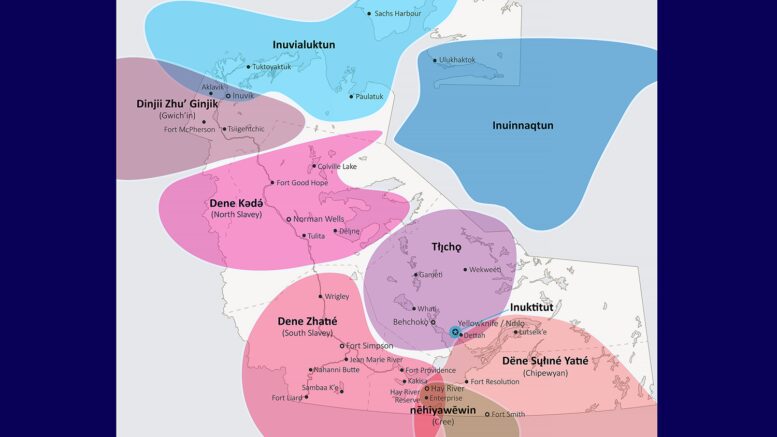Employees with the territorial government whose duties involve use of an Indigenous language will be paid a “bilingual bonus” on a preferred language basis, says a GNWT report.
Moreover, the GNWT will actively pursue future workers when they are in high school or Aurora College and make it easier to apply for positions, with a guide with step-by-step instructions “including images” for applying to a GNWT position.
The 2023/2024 Report on the Departmental Indigenous Employment Plans Results is part of the Indigenous Recruitment and Retention Framework and Action Plan.
Over the past decades, states the report, “the GNWT has developed and implemented many strategies, policies, and programs to support Indigenous applicants and employees and to increase the employment of Indigenous persons in the territorial public service.”
However, “despite the many programs the GNWT has implemented, employment levels of Indigenous persons with the GNWT have not increased compared to the growth of the GNWT. This may be in part to the gaps in the system in recruiting and retaining Indigenous Employees.”
Indigenous representation, involvement, and participation at all levels of the territorial public service is crucial to the GNWT genuinely incorporating Indigenous perspectives, values, and priorities, and to better serving the public, states the report.
So, the GNWT will also, “celebrate and recognize” GNWT employees who use Indigenous languages at work through the bilingual designation employee recognition campaign.
The GNWT also will pay for Indigenous language mentors (community members who support their language proficiency growth); training materials and travel costs, that are related to in-person training.
The GNWT also wants to root out racism in all areas:
- Departments and agencies will ensure all employees complete the Equitable Workplace: Cultivating Attitudes of Anti-Racism and Allyship Training.
- Develop and offer unconscious bias training for all employees.
- Implement annual performance expectations for (department) leaders that hold them accountable to address unconscious bias, racism, discrimination, and harassment in their organization
Equitable Workplace Cultivating Attitudes of Anti-Racism Training targets were set in the Departmental Indigenous Employment Plans of all departments and agencies.
This training is intended to allow learners to explore their own subjective experiences with racism and allyship, identifying how these behaviours impact their daily lives, especially within the workplace.
Nine of the nineteen departments and agencies met or exceeded their Equitable Workplace Training targets.
The Official Languages of the Northwest Territories are Dene Kǝdǝ́, Dëne Sųłıné, Dene Zhatıé, Dinjii Zhuʼ Ginjik, English, French, Inuinnaqtun, Inuktitut, Inuvialuktun, nēhiyawēwin and Tłı̨chǫ.
The Indigenous Recruitment and Retention Framework is connected to the Indigenous Employment Policy, which replaced the territory’s 1989-era Affirmative Action Policy.
Below are overall results from the 2025 report, at top, and the 2024 report:


(GNWT graphics)





